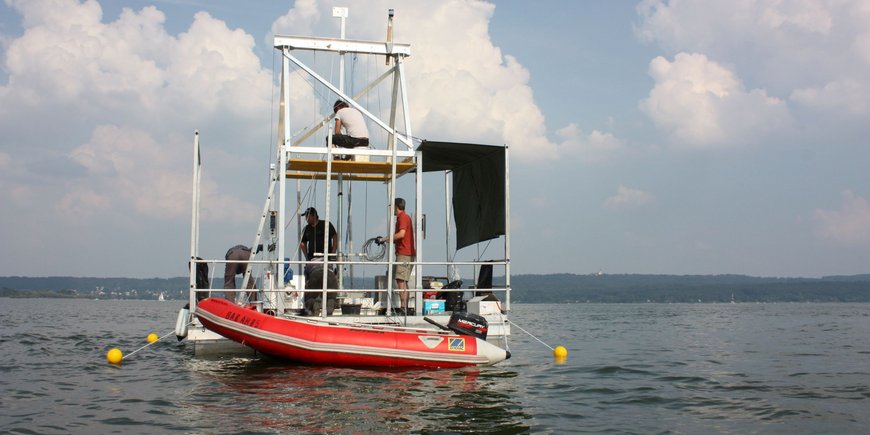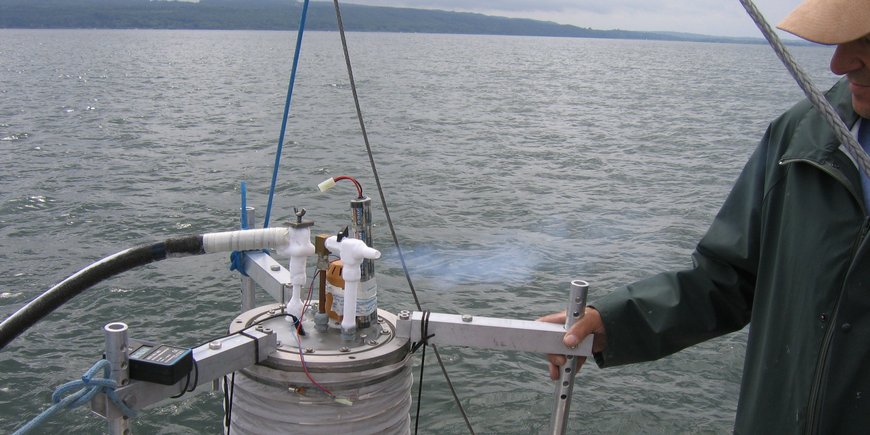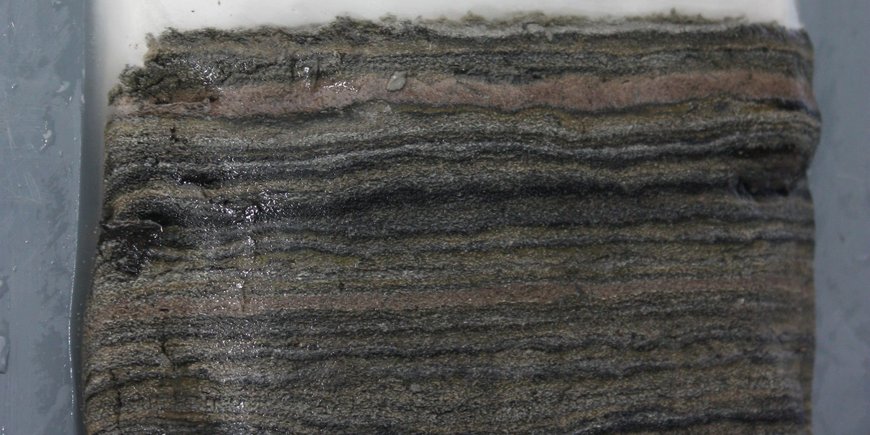An analysis of floods of the past 10,000 years from geoarchives in the Alpine region has shown that weaker floods were rarer when it was warmer, while large flood events occurred more frequently depending on the catchment area. This is shown by an international study to which researchers from the GFZ Potsdam contributed.
It is still unclear whether heavy precipitation and flooding increase or decrease with climate warming. There are open questions, especially at the regional level. In order to clarify these, climate researchers are not only looking into the future with models, but also back into the past. In a palaeohydrological study just published in the journal Nature Geosciences, the frequency and intensity of floods were reconstructed. A distinction was made between small floods (with a 10-year return period) and large events (with a 100-year return period). "We wanted to assess how flood risks have evolved in past warm periods," says Flavio Anselmetti of the University of Bern, "because it is important to assess how these risks change with climate warming. In fact, floods are ubiquitous in the Alpine region - and they cause the highest costs of all natural hazards. In mountainous regions like the Alps, the flood risk is particularly pronounced because of the topography and special hydrometeorological processes.
Reconstruction with the help of lake sediments
Now researchers from France, Switzerland, Germany and Italy have reconstructed floods in the Alpine region over the past 10,000 years. A total of 7792 flood events were included in the study. The researchers analysed information from lake sediments. They represent a natural flood archive, because during floods rivers transport increased amounts of eroded material, which eventually sinks to the bottom of lakes, where it forms characteristic flood deposits that are perfectly preserved over thousands of years. By analysing these deposits, very long flood time series can be reconstructed, going back many millennia.
"Particularly suitable for such reconstructions are lake deposits that form annual layers similar to tree rings, because they can be used to determine exactly in which season floods occurred even thousands of years ago," says Achim Brauer from the GFZ. Brauer and his research group have specialised in studying such lake deposits and they took sediment cores from Lake Ammersee in southern Germany and Lake Mondsee in Austria. Together with his doctoral students Markus Czymzik and Tina Swierczynski, he was able to use these cores to create high-resolution flood time series, which were incorporated into the study that has now been published.
The conclusion of the study is that warming over the past 10,000 years has systematically led to a decrease in smaller flood events. However, in the case of extreme events, different trends emerged regionally and depending on size and geology of the catchment area: "It seems," says Flavio Anselmetti, "that extreme floods occurred more frequently during warm periods, especially in the Alpine region." The palaeohydrological reconstructions presented from the Alpine region show how the complex relationships between climate and floods can be deciphered - and how this can improve risk assessment and risk management at the local and regional level.
What the study also illuminates: Both the trends identified and the differentiations cannot be discerned from meteorological measurement data alone, as these do not go back further than 200 years. "We depend on long flood time series from geological archives to clarify the relationship between climate and extreme events," Achim Brauer emphasises. "The study confirms the eminent importance of palaeoclimatic archives, which our working group specialises in evaluating."
Original study:
Scientific contact:
Prof. Dr. Achim Brauer
Head
Climate Dynamics and Landscape Evolution
Telegrafenberg
14473 Potsdam
Phone: +49 331 288-1330
Email: achim.brauer@gfz-potsdam.de










![[Translate to English:] Torsten Sachs in front of a climate station on a field](/fileadmin/_processed_/3/9/csm__TorstenSachs_bearbeitet_GS_4a1365ef84.jpeg)

![[Translate to English:] left image flood at the Ahrtal: image from above, several houses are flooded; left image:: Heidi Kreibich;](/fileadmin/_processed_/4/4/csm_Bild2_9af0130e9f.png)



![[Translate to English:] Start der Vega Rakete](/fileadmin/_processed_/6/4/csm_20231201-kachel_Vega-VV23-launch_ESA-CNES-Arianespace_706716b68c.jpeg)









![[Translate to English:] Poster exhibition at the Brandenburg Hydrogen Day at the GFZ, some participants in the foreground](/fileadmin/_processed_/6/5/csm_Erster_Brandenburgischer_Wasserstofftag_GFZ_402fcec95e.jpeg)
![[Translate to English:] Group picture of the participants](/fileadmin/_processed_/9/4/csm_20231108_CAWa-Workshop-Tashkent_Gruppenbild_99ea779d8a.jpeg)

![[Translate to English:] [Translate to English:] Hörsaal](/fileadmin/_processed_/e/6/csm_H%C3%B6rsal_e21ac645fb.jpeg)


![[Translate to English:] The Delegations in the Historic Library on the Telegrafenberg. In the back there are from left to right, the Dutch Ambassador for Germany, Ronald van Roeden, the Dutch Minister for Education, Culture and Science, Robbert Dijkgraaf and the scientific director of the GFZ, Susanne Buiter.](/fileadmin/_processed_/d/b/csm_Kachel-2_9eba4b4212.jpeg)

